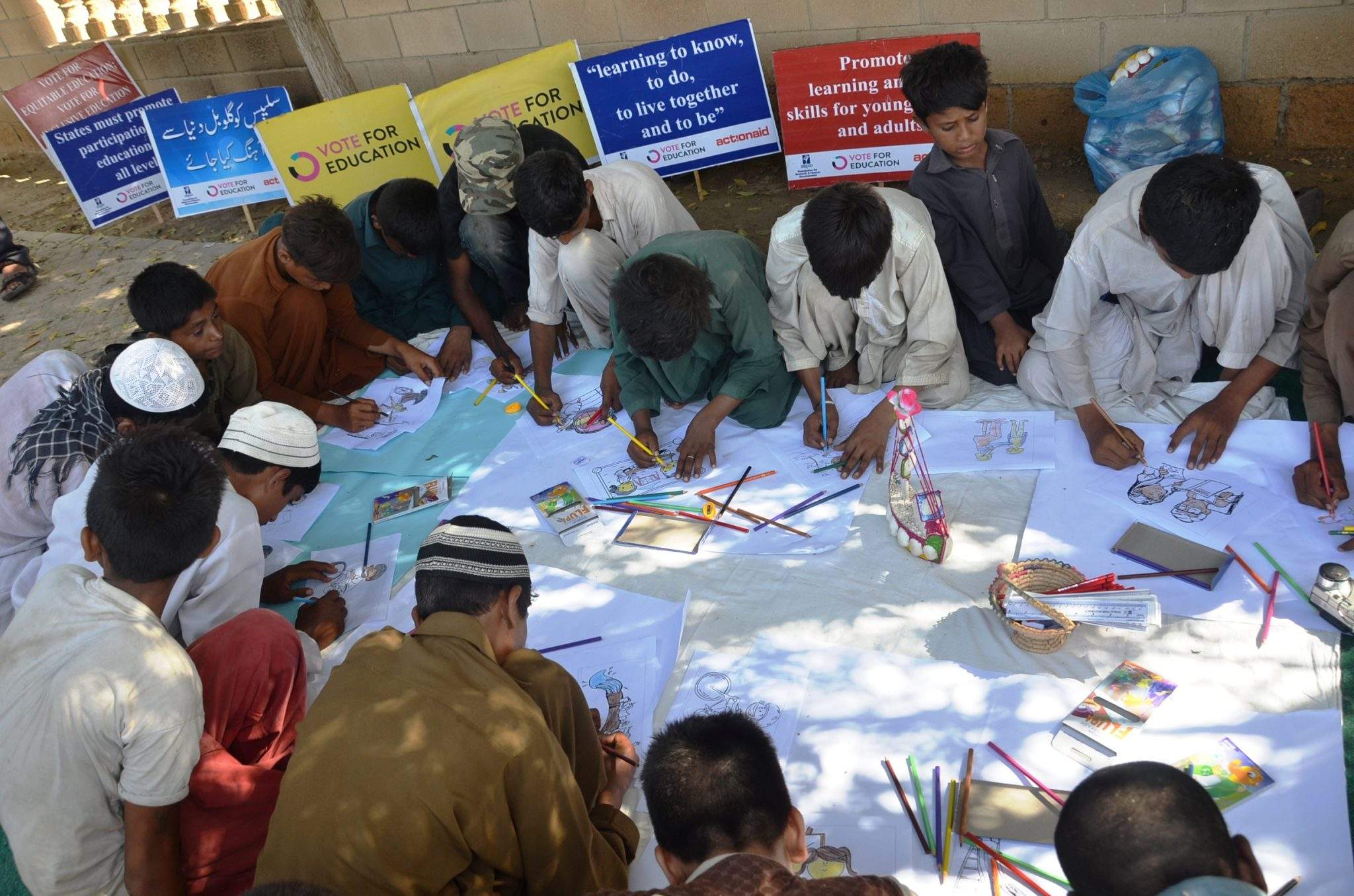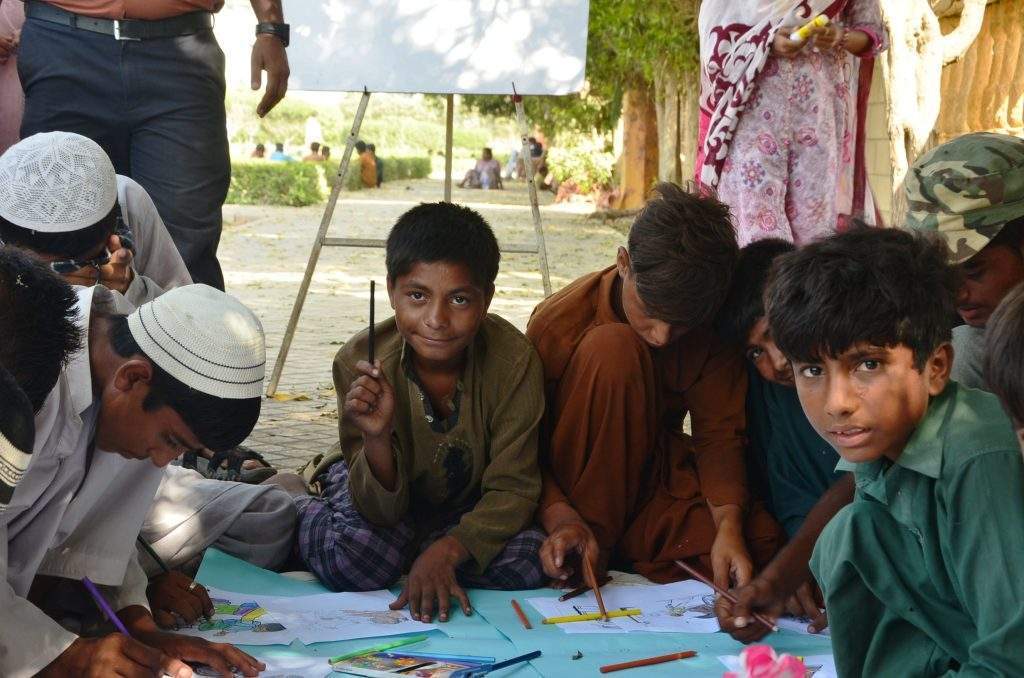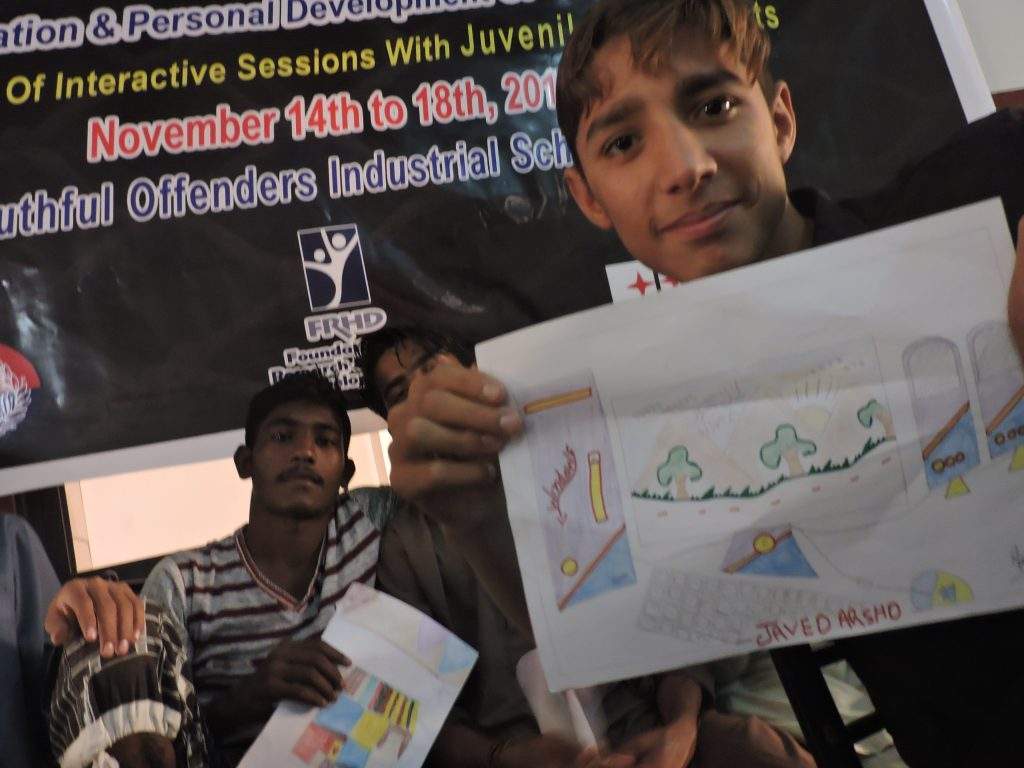Education
Supporting children in education is a step towards development, reducing poverty, and improving health, peace, stability and equality.

“Nearly 23 million children are out of school.”
Muhammad Ali Jinnah said, “Pakistan is proud of her youth, particularly the students, who are nation builders of tomorrow. They must fully equip themselves by discipline, education, and training for the arduous task lying ahead of them.”
For our nation to succeed, the children and youth of Pakistan need a brighter future. Sadly, Pakistan holds the record of having the second-highest out-of-school children. Around 22.8 million children are out of school. Most of these children are involved in child labour, criminal activities, or street begging. Even the children who are in schools have such a poor standard of education that they are not able to compete with mainstream society.
No Child Left Behind
Teacher Training Sessions
Child-Friendly School Environment
Community Mobilization
For children to get a complete education, it is imperative that they live in an environment that provides learning opportunities, both at home and school. A lot of underprivileged community members prefer to send their children to work to improve their economic wellbeing. However, this not only contributes towards child labour but also deprives children of their fundamental rights. For society to succeed, each child should be allowed a fair and equal opportunity to get educated.
Through community mobilization, FRHD aims to deliver counselling sessions to parents in underprivileged communities, so that they learn to make education a priority. With our flexible and informal teaching programs, children from all segments of society can get a decent education and become productive members of society.


Child Participation
Children are the leaders of tomorrow, and FRHD strives to recognize their full potential and polish their skills. Child participation in school is critical to boosting the confidence of young individuals. Child participation can be described as ‘children influencing issues affecting their lives, by speaking out or acting in partnership with adults’.
FRHD increased Child Participation by the formation of Child Rights Councils in schools. The main purpose of the establishment of Child Rights Councils is to create a conducive environment for school children to participate in social activities and develop enthusiasm regarding social volunteering. The inclusion of children in Child Rights Councils enables students to discuss problems being faced by their schoolmates and peers in school, at home as well as in society in general. While using the platform of Child Rights Councils students can articulate fundamental issues on an open forum.
